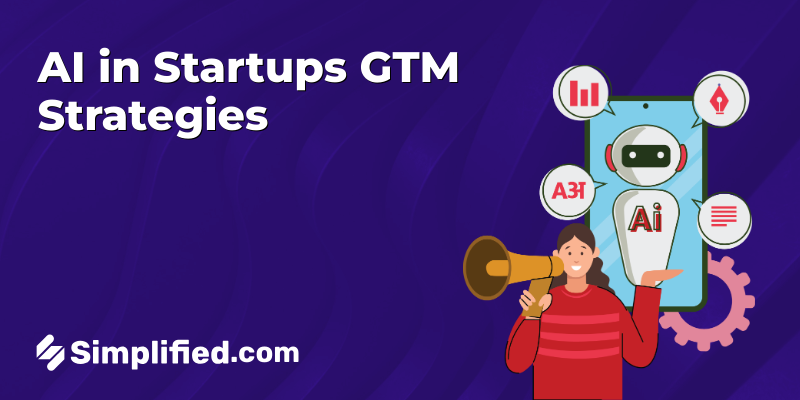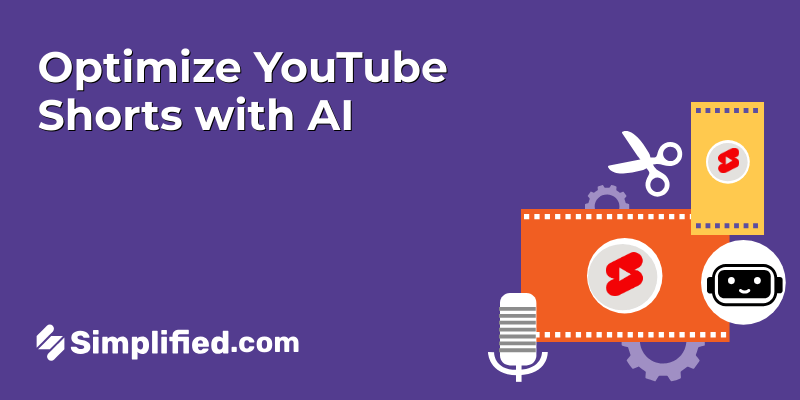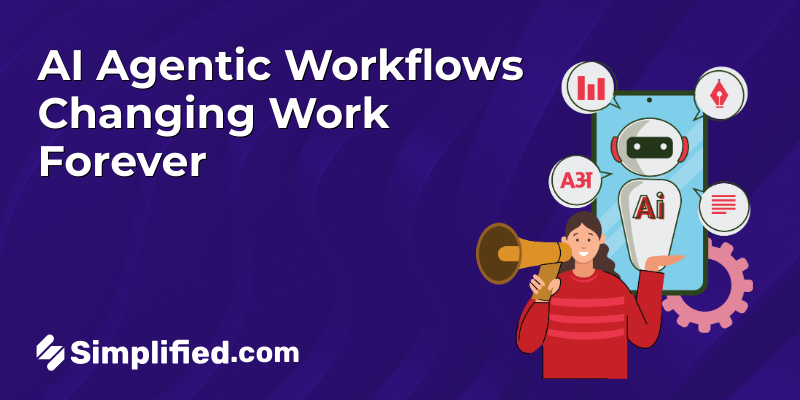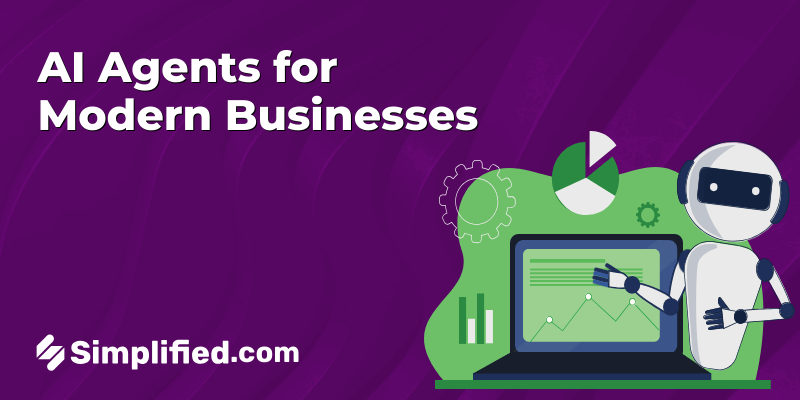
A Go-To-Market (GTM) strategy outlines how startups introduce products or services to their target market. With the rise of GTM AI, startups are now integrating artificial intelligence into their strategies to gain a competitive edge. AI-driven GTM strategies help analyze customer behavior, predict market trends, and refine decision-making.
Startups are reshaping their GTM approaches by incorporating AI tools, in line with McKinsey’s Go-To-Market strategy framework, which focuses on data-driven insights and customer-centric growth. By using AI-powered tools like customer service chatbots, intelligent prospecting platforms, and content creators, businesses are scaling faster and enhancing customer interactions. McKinsey notes that high-performing companies using AI are focused on creating new business models, increasing revenue, and adding value to their products with AI-driven features.
How Startups Are Using AI in Their GTM Strategies
Startups are incorporating GTM AI into their strategies to gain actionable insights and achieve better outcomes in marketing, sales, and customer service. Key applications include:
- Data Analysis: GTM AI processes large datasets, uncovering customer preferences and purchasing patterns.
- Marketing Automation: AI helps design and execute marketing campaigns with precision, using predictive analytics to target the right audience.
- Sales Optimization: AI tools improve sales outreach by prioritizing leads and generating personalized pitches.
- Customer Engagement: Automated chatbots and sentiment analysis powered by GTM AI help startups provide timely and personalized responses.
The Changing Nature of GTM Strategies in the Age of AI
AI is reshaping how startups create and execute their GTM plans. Traditional strategies often relied on manual processes and broad audience targeting. With AI, startups are now able to:
- Make Real-Time Adjustments: AI processes data faster, helping businesses adapt to market changes promptly.
- Improve Personalization: Startups can use AI tools to create messages and offers that resonate with specific customer segments.
- Optimize Resources: Automation reduces the time and labor required for repetitive tasks, allowing teams to focus on strategic activities.
Bonus: How to Automate Social Media Marketing for Your Startup
Key Elements of an AI-Powered GTM Strategy for Startups
Developing an AI-enabled GTM strategy requires careful planning and execution. The main components include:
- Data Infrastructure: Startups need to establish systems for collecting and storing accurate, clean data, which is essential for GTM AI tools to analyze.
- Skill Development: Teams must acquire the necessary knowledge to use AI tools effectively, either by hiring specialists, engaging a web development company, or providing internal training.
- Tool Integration: AI tools should align with existing processes to maximize their impact within the GTM strategy.
- Ethical AI Use: Ensuring transparency and avoiding biases in AI operations are critical for maintaining customer trust in a GTM AI-driven approach.
Examples of Startups Incorporating AI into GTM Strategies
1. EasyDMARC: Improving Lead Management and Outreach
EasyDMARC used AI to refine how it handles potential clients.
- Implementation: By automating lead scoring, AI identified promising prospects based on behavioral data and previous interactions.
- Outcome: This process allowed sales teams to focus on the most valuable leads, resulting in a more structured and data-driven sales funnel.
2. Zola: Analyzing Customer Sentiments
Zola, a wedding planning platform, integrated AI for understanding customer preferences.
- Implementation: Sentiment analysis tools evaluated customer feedback and usage patterns.
- Outcome: These insights helped Zola adjust its marketing efforts, leading to more relevant product recommendations and improved customer retention.
Bonus: Top Trend Tracking Tools for Social Media and Marketing
3. Drift: Enhancing Lead Engagement with Chatbots
Drift employed AI-driven chat tools for engaging visitors on its platform.
- Implementation: AI chatbots initiated conversations, gathered user data, and directed leads to the appropriate sales channels.
- Outcome: This approach minimized response delays and provided actionable insights for better customer interactions.
4. Grammarly: Using Predictive Analysis to Increase Subscriptions
Grammarly incorporated predictive models into its marketing campaigns.
- Implementation: AI identified when users were most likely to upgrade to premium services based on usage patterns.
- Outcome: Targeted offers at these critical points improved subscription rates and overall customer value.
5. Carta: Optimizing User Onboarding
Carta enhanced its onboarding process with AI-based insights.
- Implementation: Data on user behavior during onboarding highlighted areas of friction. Adjustments were made to simplify complex steps and improve guidance.
- Outcome: This led to a smoother start for users, reduced churn rates, and better engagement during the critical early stages of adoption.
These examples demonstrate how startups apply AI to improve decision-making, personalize customer experiences, and refine operational processes.
Bonus: How to Master Social Media Marketing with Competitor Analysis
AI Tools to Support Startup GTM Strategies
AI tools provide startups with solutions for marketing, sales, and customer service. Below are recommended tools. Lets dive into deep with these tools:
AI Tools for Startup Marketing
Simplified AI Writer
- AI Writer tool assists in creating a range of marketing content, including social media posts, blogs, and ad copies.
- How It Works: It uses natural language processing to tailor content based on the industry and target audience. For example, a startup can quickly draft engaging captions for Instagram or craft in-depth blog posts to enhance brand visibility.
HubSpot Content Assistant
- HubSpot Content Assistant designed to optimize content planning and SEO strategies.
- How It Works: This tool provides keyword suggestions, improves metadata, and generates outlines for blog posts. Startups benefit by increasing their organic traffic and developing data-driven content strategies.
Claude
- Claude offers email drafting and competitor research capabilities.
- How It Works: Claude enables startups to create effective email campaigns and analyze competitors’ strategies. This ensures marketing efforts are aligned with current trends, offering startups a competitive edge.
Bonus: Startup Owner’s Guide To Hiring Graphic Designers
AI Tools for Startup Sales
Simplified AI Email Generator
- AI Email Generator focused on producing personalized emails for outreach campaigns.
- How It Works: Startups can quickly generate follow-up emails or introductory messages tailored to specific leads. This increases engagement and helps maintain consistent communication with potential clients.
Gong
- Gong analyzes sales conversations to extract actionable feedback.
- How It Works: Gong identifies patterns in successful sales calls, highlights areas for improvement, and helps sales teams refine their approach. Startups use it to improve team performance and close more deals.
Dialpad
- Dialpad tracks and analyzes call data to guide sales decisions.
- How It Works: It transcribes calls, flags action items, and offers follow-up recommendations. This ensures startups remain proactive in addressing client needs and improving sales strategies.
AI Tools for Startup Customer Service
Simplified AI Chatbot
- AI chatbot tool that answers customer queries with precision.
- How It Works: This tool can handle FAQs, provide product recommendations, or resolve basic issues without human intervention. Startups benefit by ensuring customers receive consistent support, even during off-hours.
Lang.ai
- Lang.ai automates ticket categorization and prioritization for customer support teams.
- How It Works: By analyzing the language in support requests, it helps startups assign issues to the appropriate teams, speeding up resolution times and improving customer satisfaction.
Twilio
- Twilio is multi-channel communication platform for real-time interaction.
- How It Works: Twilio integrates voice, SMS, and email into a unified platform, enabling startups to connect with customers on their preferred channels. This enhances responsiveness and fosters trust.
Conclusion: AI as a Strategic Partner in GTM
AI is transforming how startups approach their Go-to-Market (GTM) strategies, offering a range of tools and insights that facilitate smarter decisions and better customer engagement. By integrating AI into their GTM approach, startups can gain deeper insights, optimize interactions, and respond to market shifts with greater precision. As startups continue to adopt AI in their GTM strategies, they position themselves to thrive in competitive markets and adapt quickly to evolving customer demands. GTM AI strategies are becoming indispensable for businesses aiming for sustained growth and success.





